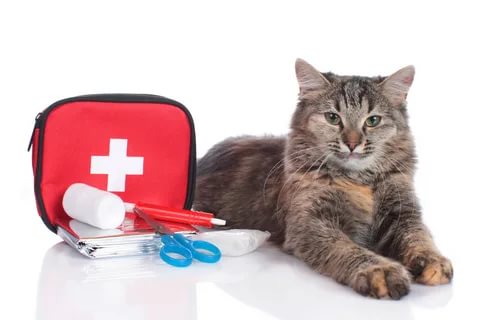Are Cats Dangerous?
Felines have an unpropitious standing; one that is tragically gratuitous. On the off chance that you tune in to old stories, you might be stunned to hear these cordial little animals are as far as anyone knows liable for wrongdoings like "taking a green filler's." (See more about regular feline legends.)
In any case, Drew Weigner, DVM, a board-confirmed cat subject matter expert and medical clinic overseer of The Cat Doctor facility in more noteworthy Atlanta disagrees with the old spouses' stories. An inoculated all around focused on confirmed indoor feline is for the most part not a perilous pet he says.
Felines, Babies and Sudden Infant Death Syndrome
Baffling bunk demise, presently called Sudden Infant Death Syndrome (SIDS), was once thought to be the deficiency of the feline. It was accepted the pet covered the baby while the youngster rested.
As of not long ago even the clinical local area censured felines for SIDS. Distributed in 1905, the accompanying clarification came from The British Journal of Children's Diseases: "Felines, in contrast to canines, reveal a prejudice for lying on the youngsters' chests in closeness to their countenances, and when that is the situation there is a genuine peril of a lethal end by suffocation."
Specialists actually don't completely get SIDS, yet they are presently ascribing it to different causes — not felines. As per the Mayo Clinic, these causes include:
Mind variations from the norm
Low birth weight
Respiratory contamination
Children dozing on their stomachs or sides
Children resting on delicate surfaces
Children dozing in the bed with their folks
Felines are not, at this point referenced as a danger factor.
The Mayo Clinic likewise brings up that the most probable casualties of SIDS are:
Young men
Infants somewhere in the range of two and three months old enough
African American or Native American
Infants naturally introduced to families with a background marked by SIDS
Infants destined to moms younger than 20
Infants whose moms smoked or ingested medications during pregnancy
Infants whose moms get lacking pre-birth care
Notwithstanding the way that felines have been excused for "taking a green filler's," Dr. Weigner says you ought to never leave any pet in a room alone with a child. "It's simply presence of mind."
Toxoplamosis, Pregnant Women and Cats
As per the Center for Disease Control's (CDC) FAQ page on toxoplasmosis:
A solitary celled parasite called toxoplasma gondii [T.gondii] causes an infection known as toxoplasmosis. While the parasite is found all through the world, in excess of 60 million individuals in the United States might be contaminated with the toxoplasma parasite. Of the individuals who are tainted, not many have manifestations in light of the fact that a solid individual's invulnerable framework as a rule shields the parasite from causing sickness. Be that as it may, pregnant ladies and people who have undermined resistant frameworks ought to be careful; for them, a toxoplasma disease could cause genuine medical issues.
How might somebody get toxoplasmosis?
People are probably not going to get toxoplasmosis by petting or holding a feline, as per the CDC. People can get toxoplasmosis through openness to sullied feline crap or by eating defiled meat that has not been altogether cooked.
Felines are only one potential technique for transmission of the T.gondii parasite to an individual. The CDC says an individual can get presented to toxoplasmosis by:
Eating sullied meat, particularly pork, sheep, or deer meat
Eating half-cooked meat
Cutting polluted meat and vegetables with a similar blade
Eating inappropriately washed organic products or vegetables
Planting in debased soil
How long does a feline have toxoplasmosis?
As indicated by the CDC's Toxoplasmosis: An Important Message for Cat Owners, "After a feline has been contaminated, it can shed the parasite for as long as about fourteen days." However, the CDC likewise noticed that the eggs of the parasite require over one day to incubate, so cleaning your litter box day by day will decrease your odds of openness.
Would it be advisable for me to surrender my feline?
The CDC noticed that even pregnant ladies and people with traded off invulnerable frameworks don't have to surrender their felines: "You don't need to surrender your feline. Possessing a feline doesn't mean you will be tainted with the parasite. It is improbable that you would be presented to the parasite by contacting a tainted feline since felines generally don't convey the parasite on their hide."
How might I diminish my odds of openness to toxoplasmosis?
On the off chance that you are pregnant, the CDC prescribes these means to diminish your opportunity of openness:
Have another person clean the litter box, or wear elastic gloves when you change it
Wash your hands altogether with cleanser and water subsequent to tending litter boxes
Scoop every day
Keep your feline inside the house and away from prey that could be contaminated with T.Gondii
Try not to dive in earth without garden gloves
Wash your hands in the wake of planting.
Keep any open air sandboxes covered
As indicated by the Mayo Clinic, "In the event that you've just had toxoplasmosis prior to getting pregnant, you for the most part can't pass the contamination to your child."






Post a Comment